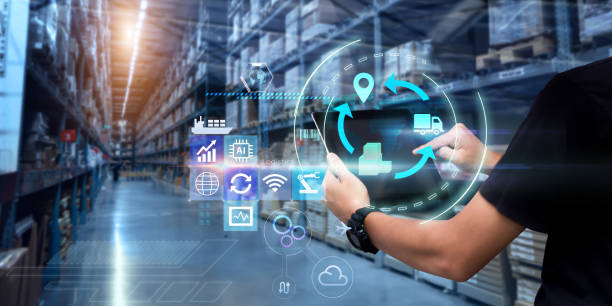In the evolving retail landscape, a major recent game-changer is the integration of artificial intelligence AI in e-commerce platforms. This technological revolution is not only transforming how businesses operate but also reshaping the entire shopping experience for consumers worldwide. From personalized recommendations to supply chain optimization, AI is powering the future of retail in ways previously unimaginable.
Personalized Shopping Experience – AI in E-commerce
Gone are the days of generic product recommendations and irrelevant advertisements. Additionally, AI algorithms analyze extensive consumer data, enabling e-commerce platforms to offer personalized shopping experiences based on individual preferences, browsing history, and purchase behavior. So, by leveraging machine learning techniques, AI can accurately predict what products a customer is most likely to buy, leading to increased sales and customer satisfaction.
Enhanced Customer Service
AI-powered chatbots are revolutionizing customer service in e-commerce by providing instant assistance to shoppers 24/7. Moreover, these intelligent virtual assistants can answer queries, offer product recommendations, and even process orders seamlessly. So, by automating routine tasks, businesses can free up human resources to focus on more complex issues, ultimately improving the overall efficiency of customer support operations.
Predictive Analytics
AI-driven predictive analytics enable retailers to forecast demand, optimize pricing strategies, and manage inventory more effectively. AI algorithms can identify patterns and make accurate predictions about future consumer behavior by analyzing historical sales data, market trends, and external factors such as weather patterns. So, this allows retailers to optimize their supply chain, reduce stockouts, and minimize overstocking, ultimately leading to increased profitability.

Visual Search and Image Recognition – AI in E-commerce
Visual search technology powered by AI enables consumers to search for products using images rather than text. So, by simply uploading a photo or taking a picture with their smartphone camera, shoppers can find similar products across e-commerce platforms instantly. So, this not only enhances the search experience but also helps retailers drive sales by facilitating product discovery and reducing friction in the purchasing process.
Fraud Detection and Security
AI algorithms are vital for spotting and stopping fraud in e-commerce, like payment fraud and account takeovers. Moreover, by analyzing user behavior patterns and transaction data in real-time, AI tools can detect and flag suspicious activities for investigation. And, this helps protect both businesses and consumers from financial losses and maintains trust in the e-commerce ecosystem.
The Future of Retail
As AI advances, its impact on e-commerce will only grow stronger. Furthermore, from automated warehouses and delivery drones to augmented reality shopping experiences, the possibilities are endless. However, it’s essential to balance innovation with ethical considerations, such as data privacy and algorithmic bias, to ensure that AI-driven retail solutions benefit society.
Conclusion: AI in E-commerce
AI is revolutionizing retail by empowering businesses to deliver personalized experiences, optimize operations, and enhance security. By embracing these technologies, e-commerce platforms can stay ahead of the competition and meet the ever-changing demands of today’s consumers. AI will keep shaping the retail industry in exciting ways as we move forward.









[…] To know more about AI, check out our latest blog. […]
[…] delays, while frustrating, are often the result of complex logistical challenges that even a retail giant like Amazon faces. By understanding the common causes of delays and staying informed, you can […]